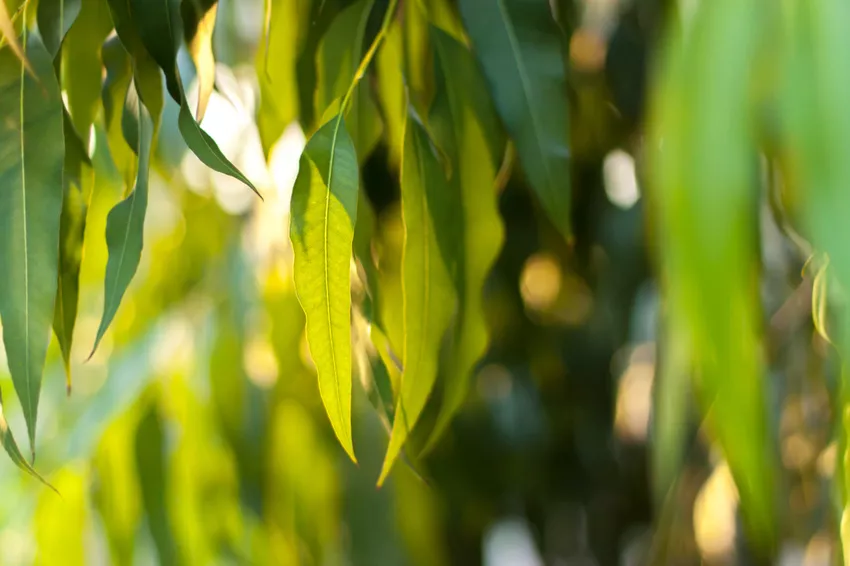- Suitable location
- Characteristics of different eucalyptus species
- Changes in leaves with age
- heat resistance
- Application in medicine
Eucalyptus leaves inspire the gardener with their bluish shimmer. They are also of great importance in medicine due to their healing ingredients. Find out everything you need to know about the foliage of the Australian deciduous tree on this page.
 The leaves vary from variety to variety
The leaves vary from variety to variety
Suitable location
Except for a few species that also thrive in partial shade, the eucalyptus needs a lot of light. It is best to plant it in a south-facing spot. Avoid letting the tree grow in the shade of other plants. Otherwise, the leaves will lighten and lose their pretty appearance.
Characteristics of different eucalyptus species
With the following overview you will learn to tell different eucalyptus species apart by the appearance of their leaves.
The blue gum tree (Eucalyptus Globulus)
- every two leaves enclose a branch
- ovate and green
- alternating arrangement
- smooth leaf edge
The Speckled Eucalyptus Corymbia maculata)
- elongated or ovoid
- shiny green
- smooth, slightly wavy leaf margin
- up to 20 cm in length
Red Eucalyptus (Eucalyptus camaldulensis)
- ovoid or elongated
- green to gray-green
- up to 30 cm in length
- smooth leaf edge
The snow gum (Eucalyptus pauciflora subsp niphophila)
- elongated, oval
- grey-green, shimmering whitish
- smooth leaf edge
The Silver Dollar Eucalyptus (Eucalyptus polyanthemos)
- blue green
- around
- slight notches in the sheet margin
The Tasmanian Snow Eucalyptus
- oval, oblong
- grey-green, shimmering whitish
- smooth leaf edge
Changes in leaves with age
The leaves of the eucalyptus show a so-called heterophylly. This means that they change shape and color throughout life. You can clearly observe this characteristic especially in the Tasmanian snow gum. The eucalyptus globulus provides another example:
leaves at a young age
- opposing arrangement
- round or ovoid
- without petiole
- entire
- dull grey-green
leaves in old age
- Petioles with narrow flattened, channel-shaped cross-section
- shiny green
heat resistance
The eucalyptus originally comes from warm Australia and Tasmania. So that the water in the leaf veins does not evaporate due to the high level of solar radiation, the leaf blades are rotated by 90°C.
Application in medicine
Not only koalas like to nibble on the leaves of the eucalyptus. The healing ingredients also play an important role for humans. Most pharmacists use the eucalyptus globulus for the manufacture and distribution of medicines. The essential oils contained
- clear your nose when you have a cold
- have a relaxing effect
- make it easier to cough up mucus in the lungs
- fight bacteria
- have a cooling effect on the skin
The active ingredient cineol in particular is responsible for the healing benefits. However, an overdose can lead to stomach cramps, which is why you should always take eucalyptus extracts according to the package insert, the advice of your doctor and only in a diluted ration.